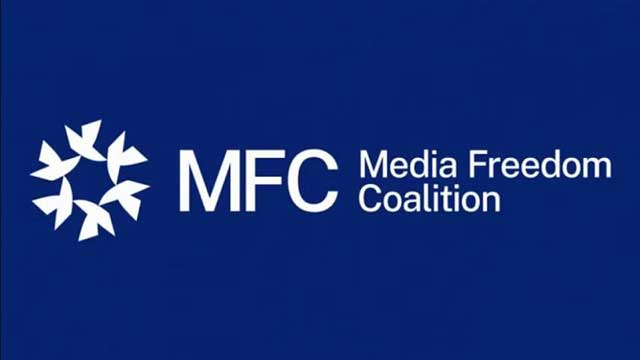Foreign diplomats at a discussion on Wednesday highlighted the importance of a free and independent press in any democracy.
They also underscored the importance of press freedom and the value of protecting it.
The US embassy in Dhaka hosted the discussion titled ‘Shaping a future of rights: Freedom of expression as a driver for all other human rights’ held at the American Centre auditorium to commemorate World Press Freedom Day 2023.
Representatives of member countries of the Media Freedom Coalition in Bangladesh attended the event.
In 1993, the United Nations General Assembly declared May 3 as ‘World Press Freedom Day’.
It’s the day to celebrate the fundamental principles of press freedom, to evaluate press freedom around the world, to defend the media from attacks on its independence, and to pay tribute to journalists who have lost their lives practicing their profession.
Charge d’ affaires at the US embassy in Dhaka Helen LaFave said that freedom of press was vital in any democracy.
Journalism is not a crime, and protecting media freedom benefits society, she said.
‘Journalism is not a crime. I repeat journalism is not a crime. Journalists should not be punished or face criminal charges just for doing their job. It is not enough to have a constitutional provision or law that protects journalists on paper,’ she said, adding that leaders must demonstrate every day by their words and actions that they truly believe in press freedom.
By protecting media freedom, Helen LaFave said, a society is more prosperous. ‘A free press promotes transparency, which increases accountability as it helps reduce corruption, and fosters a business-friendly environment.’
‘Together, let us uphold the principles of media freedom and allow the light to shine. Let us resist efforts to silence critical voices or limit the scope of the media. Let us work together to build a more just, equitable, and prosperous world,’ she said.
Canadian high commissioner to Bangladesh Lily Nicholls said that the number of countries regarded as safe where journalists could work in complete security, continues to decline.
Quoting the World Press Freedom Index prepared by Reporters without Borders, she said that journalism was blocked or impeded in 73 per cent of the 180 countries they studied.
The high commissioner said that they must acknowledge the important role of women journalists and other marginalised groups in the exercise, promotion and protection of press freedom and the specific risks they faced as they carry out their work.
Australian high commissioner to Bangladesh Jeremy Bruer, Dutch ambassador to Bangladesh Anne van Leeuwen, UN resident coordinator in Bangladesh Gwyn Lewis, representatives of the Media Freedom Coalition and senior journalists were present.
Prothom Alo special correspondent Rozina Islam, who also spoke at the discussion, said that press freedom was essential because it helped create public opinion and brought accountability, empowers journalists to expose corruption.
She urged the government of Bangladesh to ensure safety and security of journalists and to respect freedom of press.
‘Journalism is not a crime. Stay with us. Long live journalism,’ Rozina said, adding that she is fighting for justice.
The programme began with a video screening that contained comments from diplomats.
A free press is also essential for promoting human rights and social justice, according to a joint article by the embassies and high commissions of Australia, Canada, Denmark, France, Germany, Italy, Japan, Netherlands, Norway, Spain, Sweden, Switzerland, United Kingdom and the United States.
‘Journalists play a critical role in exposing human rights abuses and violations, and promoting accountability. This is true for every country where a free press exists,’ the article shared in the programme reads.
Journalists can also promote gender equality by ensuring that women’s voices are heard, and their experiences represented, according to the article.
‘By ensuring press freedom, a sound basis is set for societies to develop and to improve through open discussions. The members of the Media Freedom Coalition in Bangladesh enthusiastically look forward to continuing this conversation with all parties,’ according to the article.





